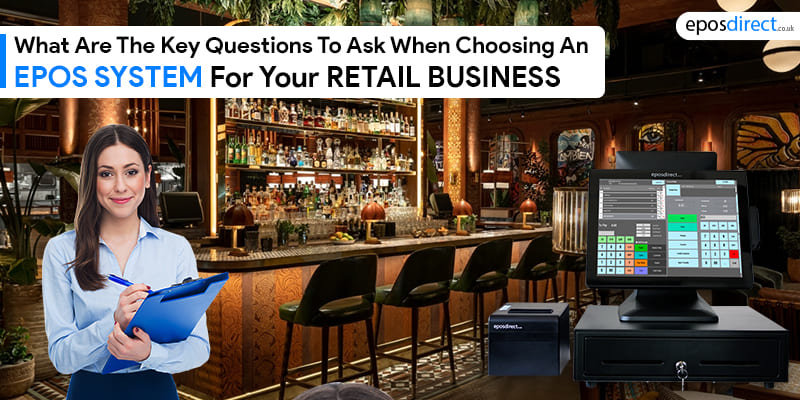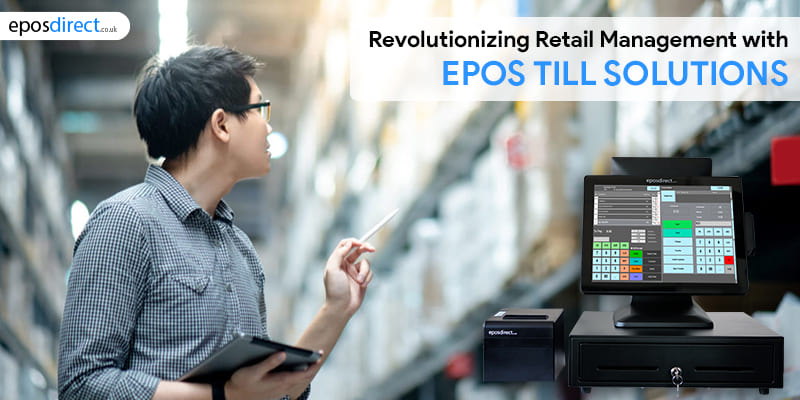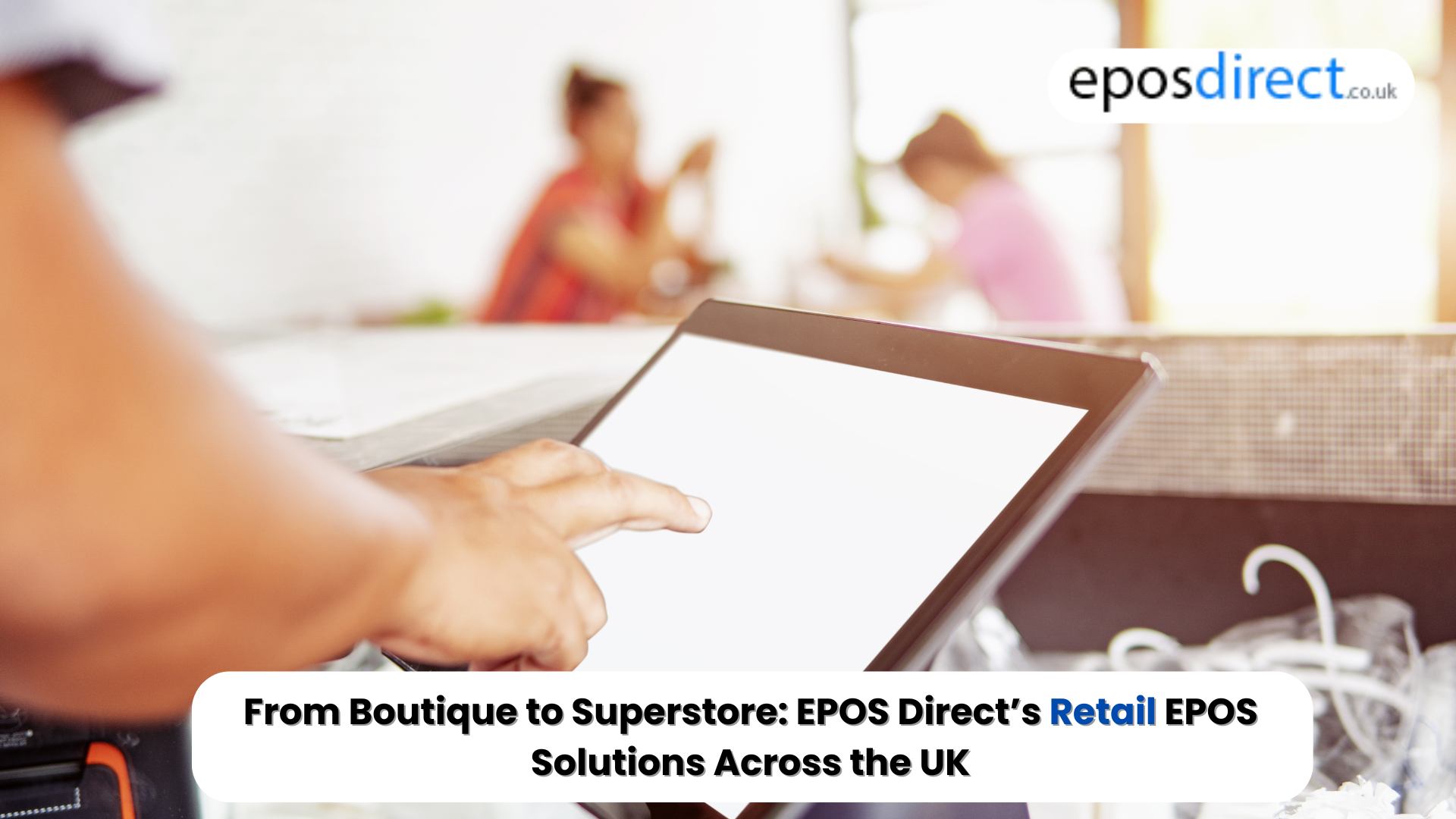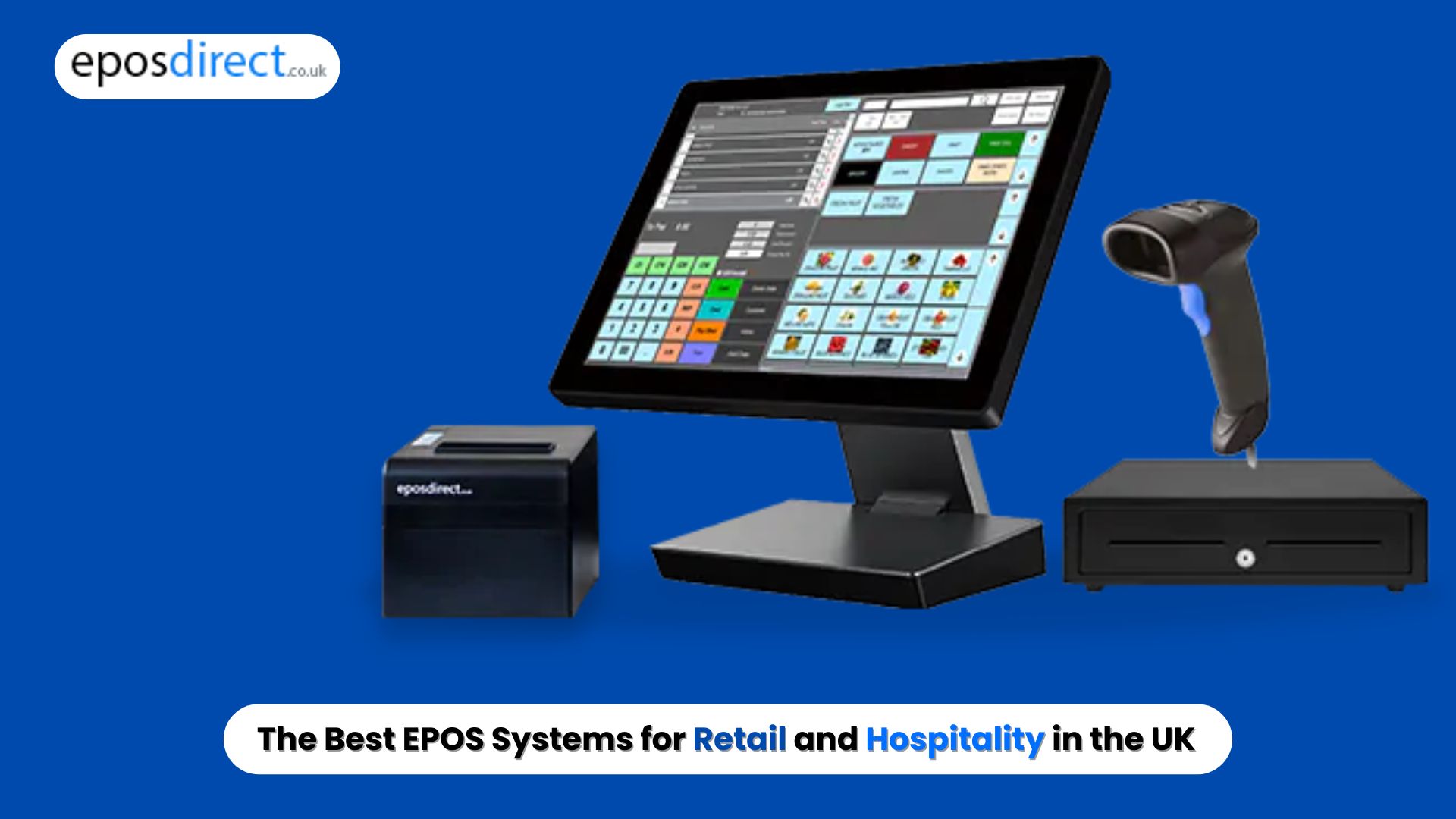We use cookies to make your experience better.
To comply with the new e-Privacy directive, you agree to the privacy policy and our use of cookies
What Are The Key Questions To Ask When Choosing An Epos System For Your Retail Business
In the modern world of the retail industry, staying competitive and efficient is crucial to a successful business. One of the most significant technological advancements that have transformed the retail industry is the Electronic Point of Sale (EPOS) system. An EPOS system streamlines various aspects of a retail business, from inventory management to sales tracking, providing retailers with the tools they need to thrive in a highly competitive market.
However, choosing the right EPOS system for your retail business can be a daunting task. The market is flooded with a myriad of options, each offering a unique set of features and capabilities. To ensure that you make an informed decision, it's essential to ask the right questions during the selection process. In this article, we'll explore the key questions you should ask when choosing a retail EPOS system for your business.
What Are My Business Needs and Objectives?
Before diving into the world of EPOS systems, it's crucial to have a clear understanding of your business needs and objectives. Consider the specific requirements of your retail operation, such as the size of your store, the type of products you sell, and the volume of daily transactions. Are you looking to streamline inventory management, improve customer service, or gain better insights into sales data? Identifying your goals and priorities will help you narrow down your EPOS options.
Is the EPOS System Scalable?
As your retail business grows, so will your requirements. It's essential to choose an EPOS system that can scale with your business. Ask the provider if the system can accommodate additional registers, store locations, or users without significant disruptions. Scalability ensures that your investment in an EPOS system remains relevant and cost-effective in the long term.
What Hardware Will I Need?
An EPOS system typically consists of both software and hardware components. Understanding the hardware requirements is essential to avoid unexpected costs. Ask the EPOS provider about the compatibility of their software with various hardware options, such as cash registers, barcode scanners, receipt printers, and payment terminals. Consider whether you already have some of these components or if you need to purchase them separately.
Is the System User-Friendly?
The usability of your chosen EPOS system is crucial for your employees' efficiency and effectiveness. A user-friendly interface makes training new staff members more straightforward and reduces the risk of errors during checkout. Request a demonstration or trial period to assess the system's ease of use from both the employee and customer perspectives.
What Reporting and Analytics Features Are Available?
One of the significant advantages of an EPOS system is the ability to gather and analyze data. Inquire about the reporting and analytics capabilities of the system. Can it generate detailed sales reports, track inventory turnover, and provide insights into customer behaviour? Comprehensive reporting tools can help you make informed decisions and refine your business strategies.
Does the EPOS System Offer Inventory Management Features?
Effective inventory management is crucial for retail businesses. Ask whether the EPOS system offers features such as real-time inventory tracking, automatic restocking notifications, and the ability to manage multiple locations or warehouses. A robust inventory management system can prevent stockouts, reduce overstocking, and improve overall profitability.
What Payment Processing Options Are Supported?
Payment processing is a critical aspect of any retail business. Ensure that the EPOS system supports various payment methods, including credit cards, debit cards, mobile payments, and digital wallets. Additionally, inquire about payment security measures and compliance with industry standards like the Payment Card Industry Data Security Standard (PCI DSS) to protect customer data.
Does the System Offer Customer Relationship Management (CRM) Tools?
Building strong customer relationships is essential for retail success. A good EPOS system should include CRM tools that enable you to track customer purchases, preferences, and contact information. CRM features can help you tailor marketing campaigns, offer personalized promotions, and enhance the overall customer experience.
What Customer Support and Training Options Are Available?
No matter how user-friendly a Point of Sale system may be, there will be times when you need assistance or training. Ask the provider about their customer support options, including availability, response times, and support channels (phone, email, live chat). Inquire about training resources and whether they offer on-site training or online tutorials to ensure that your staff can effectively use the system.
Is the System Cloud-Based or On-Premises?
EPOS systems come in two primary deployment models: cloud-based (Software as a Service, or SaaS) and on-premises. Cloud-based systems offer the advantage of accessibility from anywhere with an internet connection, automatic updates, and scalability. On-premises solutions, on the other hand, provide more control over data and may be preferred for certain security or compliance reasons. Consider which deployment model aligns better with your business needs and infrastructure.
What Integration Options Are Available?
Your EPOS system should seamlessly integrate with other essential business tools, such as accounting software, e-commerce platforms, and loyalty programs. Ask the provider about their integration options and whether they offer APIs (Application Programming Interfaces) for custom integrations. Integration capabilities can enhance operational efficiency and data accuracy.
What is the Total Cost of Ownership (TCO)?
Understanding the total cost of ownership is essential when selecting an EPOS system in London. In addition to the upfront costs, consider ongoing expenses such as subscription fees, hardware maintenance, and software updates. Evaluate the return on investment (ROI) to determine whether the benefits of the EPOS system justify the costs.
What Security Measures Are in Place?
Retail businesses handle sensitive customer and financial data, making security a top priority. Inquire about the security measures implemented by the EPOS system UK provider. Ask about data encryption, user access controls, and backup and recovery procedures. Ensure that the system complies with industry standards and regulations to protect your business and customer information.
Can the System Adapt to Changing Regulations?
Regulations in the retail industry, such as tax laws and data privacy regulations, can change over time. Ask the EPOS provider how they handle updates and compliance with new regulations. A system that can adapt to evolving legal requirements will help you avoid costly penalties and ensure that your business remains in good standing.
What is the Provider's Reputation and Track Record?
Research the EPOS system provider's reputation and track record in the industry. Look for customer reviews and testimonials to gauge user satisfaction. Investigate whether the provider has a history of reliability, customer support excellence, and innovation. A reputable provider is more likely to deliver a high-quality EPOS system and provide ongoing support.
Does the System Offer Mobile Functionality?
Mobile functionality is becoming increasingly important in the retail industry. Ask whether the EPOS system offers mobile apps or compatibility with mobile devices like tablets and smartphones. Mobile capabilities can help your staff assist customers on the sales floor, process transactions remotely, and manage inventory while on the move.
What Backup and Disaster Recovery Plans Are in Place?
Data loss and system downtime can have significant consequences for a retail business. Inquire about the EPOS UK provider's backup and disaster recovery plans. How frequently is data backed up, and how quickly can the system be restored in the event of a failure or disaster? A robust backup and recovery strategy can minimize downtime and data loss.
Are There Hidden Costs or Limitations?
Carefully review the contract and pricing structure to uncover any hidden costs or limitations. Ask about fees for additional users, software upgrades, or technical support beyond the initial agreement. Understanding the terms and conditions.








